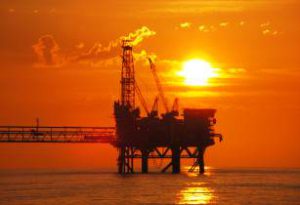
Harvard Africa Policy Journal (APJ): Hi Lekan. Thank you very much for your availability for this interview. You are the CEO of Lekoil, a young Nigerian international oil exploration and production company. Where does the company have its offices?
Lekan Akinyanmi (L.A.): Hi William. My pleasure! Thanks for inviting me! So, Lagos is the head office; we have an operations office in Port Harcourt and offices in Princeton (New Jersey), Singapore, and Namibia.
APJ: Wow! It is impressive, given the fact that Lekoil was incorporated as recently as in December 2010…
L.A.: (Laugh) Yes, we are just 4 years old, and employ about 40 people now.
APJ: Your staff has very diversified backgrounds. I was wondering: Do you consider Lekoil as an achievement of Nigeria’s local content policy?
L.A.: Well, I hate to say this, but I don’t consider Lekoil as such. The reason for that is that the local content policy, right now, is focused on the oil service part of it and not on E&P [Exploration and Production]. I would rather say that Lekoil is part of the result of the focus on indigenization.
One of the reasons why I founded Lekoil is my knowing that there were some benefits for indigenous companies –Not just in Nigeria, but in other parts of Africa as well. In Nigeria, it is quite explicit because of the local content policy. But, in other African countries, the local content policy is present as well, but is implicit.
In Nigeria, there are some fields that only indigenous companies can bid for. For example, the marginal fields that we are getting in are not part of the local content policy, but are results thereof.
APJ: I tend to agree with you because what I would consider an achievement of the local content policy would have been the fact that most of your staff got their professional experiences in Nigeria. But this is not the case as they used to work in international oil and service companies abroad…
L.A.: Well, like it or not, because the local content policy is there, people really want to promote indigenous companies. Again, in Nigeria, it is explicit while in other parts of Africa where there is no local content policy, it is implicit. Let me give you an example: We went to Namibia to look for an asset, and met with people. When they learnt that we were from Nigeria, they were very happy, saying things like: “Oh my brother! Where have you been so far? We had been giving all of our assets to foreigners. We need more Africans here.”
APJ: I have in front of me the main steps of your evolution, and am noticing that you mainly exploit the leftovers of the international oil majors in Nigeria. Given your strong growth, when do you think that you would become a major player, as opposed to contenting yourselves with leftovers?
L.A.: Let’s talk about that. I am glad you have brought it up. The OPL310 block mentioned in that document is a discovery that was made in 2013. It was one of the largest discoveries in the world in that year – I think that it was the largest in terms of oil. It contains 775 million barrels of oil equivalent (boe). We were in that exploration well with two other companies – we brought money into the project, and this was how we earned our interest. We probed a whole area from the Niger delta to the Dahomey basin which had been overlooked for decades. We did a lot of work. Now, others are showing a lot of interest in that area (smile).
APJ: This happened only three years after your incorporation… Congratulations!
L.A.: Thank you very much! Now, once a discovery is made, a lot of money would be plowed in before production can start. It takes seven years on average. Meantime, we need something that could generate cash flows. That is why we went to get marginal fields as we can start production there in matters of weeks. We will start oil production in OPL310 in 2019.
APJ: Have you already signed a production sharing agreement with the Nigerian government about OPL310?
L.A.: Nigeria has different kinds of agreements for different blocks. OPL310 falls under the category of “sole risk” so that the Nigerian government does not own any part of it. They get royalties and taxes, but there is no production sharing agreement.
APJ: So, this is a godsend for you…
L.A.: It is. It is funny that you say that, as the name of the field on the OPL310 license is “Ogo”, which means “Glory”.
APJ: What do you think of African governments’ policies to develop their oil sectors? Given the importance of the oil sector in its economy, I think that Nigeria should build an institute of petroleum to train local experts and assure knowledge transfer – Don’t you think so?
L.A.: Nigeria already has an institute of petroleum which just needs be revitalized. Most of the major oil discoveries made in Nigeria are owed to a Nigerian who was trained locally and whom I know very well for that matter. I was in the oil panel [at the 6th annual African Development Conference at Harvard] with a Schlumberger representative who said that there were few qualified workers in the sector in Africa. This was clearly not true. In Nigeria, for example, there are so many well-trained geologists, geophysicists, electrical engineers, etc., that once you advertize a job opening, you are immediately swarmed with applications. I encourage other African countries to follow the example of Nigeria.
Now, what I deplore about Nigeria is the lack of shipbuilding yard. It is incomprehensible that the ships used in the Nigerian oil sector be built in South Korea, where the oil sector is inexistent.
APJ: I guess that the next step in your growth path is shale oil and gas, and deep water exploration – Isn’t it?
L.A.: We already have expertise in both, and are already exploring in shallow and deep waters off Nigeria’s coasts. However, I don’t think that shale oil and gas is necessary for Africa now.
APJ: How do you envision the growth path of Lekoil? Do you think that you will become an African oil major 15 years from now?
L.A.: Absolutely. As you can notice, our logo has a cheetah jumping across a circle.
APJ: Oh! I thought it was a tiger.
L.A.: The biggest oil major is Exxon Mobil, and it is referred to as the tiger. The cheetah is of the same family as the tiger, but is faster (smile).
APJ: (Laugh) Lekan, I wish you all the best. Thank you very much!
L.A.: My pleasure. Thank you!
Source: http://www.oilreviewafrica.com/exploration/exploration/lekoil-and-partner-secures-approval-to-re-enter-well-offshore-nigeria
